Covid-19: Three Essex survivors recount their experiences
- Published
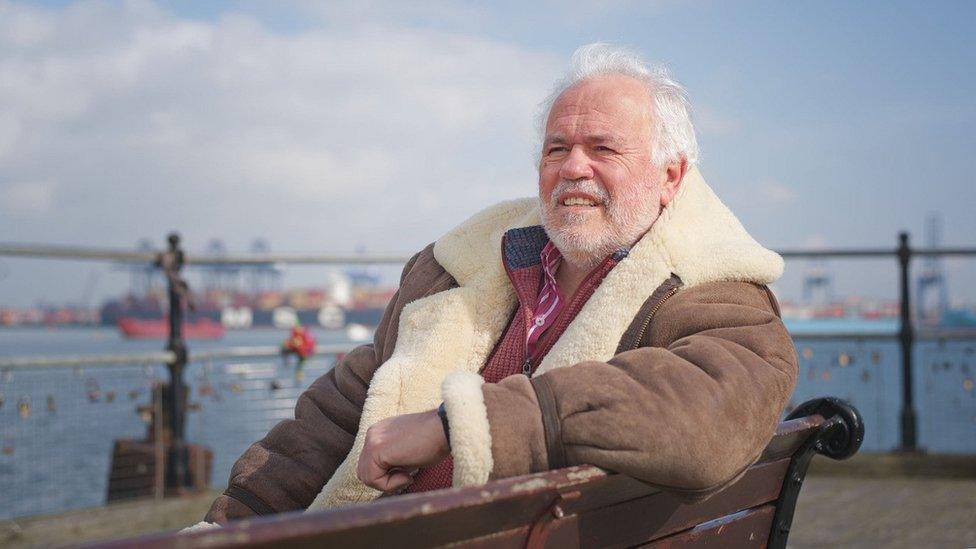
Tony Francis, of Harwich, was taken into hospital when his blood oxygen dropped to a dangerously low level
The coronavirus pandemic has claimed more than 126,000 lives across the UK. Many hundreds of thousands more have needed hospital treatment. Here, three survivors explain how the virus has changed their outlook on life.

'It was like kissing a photograph of a loved one'
"When your blood oxygen levels plummet, you don't know it's happening," says former police detective Tony Francis.
Diagnosed with coronavirus on 12 January, Mr Francis, of Harwich, was taken to hospital four days later.
His primary symptom was not breathing difficulties but a relentless and severe nausea.
"It was nasty," the 63-year-old says. "The nausea was unbelievable. But I didn't realise how ill I was getting.
"The family and Julie [his girlfriend} were both telling me I really needed to go to hospital.
"Four days after I had the positive test I succumbed and they called an ambulance and off I went," says Mr Francis, who has four children and eight grandchildren.
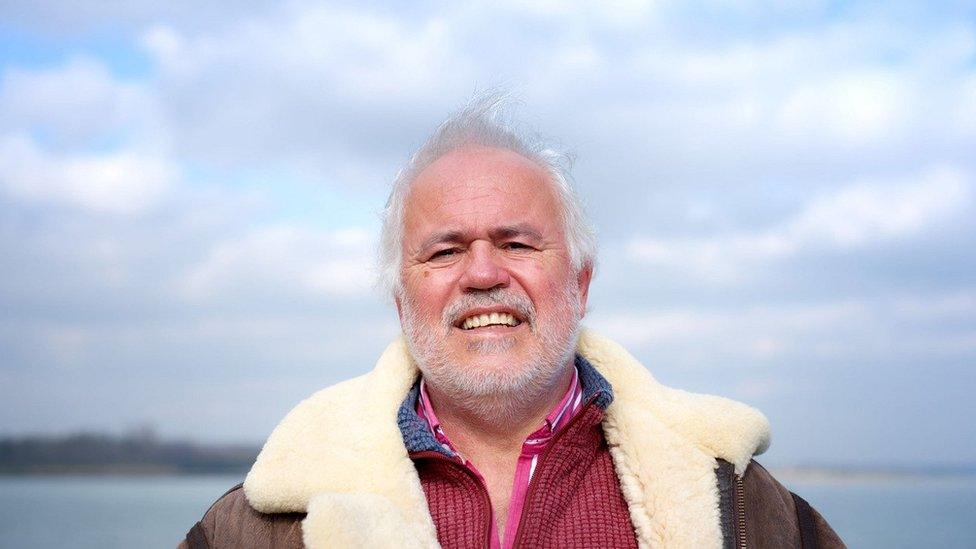
Mr Francis saw visitors through his front window as loved ones came to check on him from the confines of his garden
He spent five nights at Colchester Hospital.
But it was once he was home that proved most surreal, with visitors turning up in his garden, expressing their love and care for him and then departing.
Because of the lockdown, he was unable to see them in person. Instead, he found himself greeting them through his front window.
"It was like being at my own funeral," he says. "Actually it was like being in heaven and looking down. I was seeing my loved ones and they were streaming in. It was fantastic seeing the grandchildren in the front garden."
He tells how on one occasion he kissed his partner Julie through the front window.
"It was amazing how effective it was. It was like kissing a photograph of a loved one."
The whole experience, he says, was a profound one of feeling loved.
"Of course there have been little doubts in my mind occasionally about how much people care about me or how much people love me.
"But it wasn't just my immediate family who responded, it was my friends as well.
"One friend had my home cleaned for me. And I don't just mean cleaned I mean it was perfect - all the shirts were ironed and folded. I walked into my place and I could hardly recognise it. He had that done for me.
"It was beyond the norm. I had former colleagues from the police telling me off for not telling them I was ill.
"It was amazing. This town is very, very good at caring for each other."

'I just couldn't believe I could be so vulnerable'
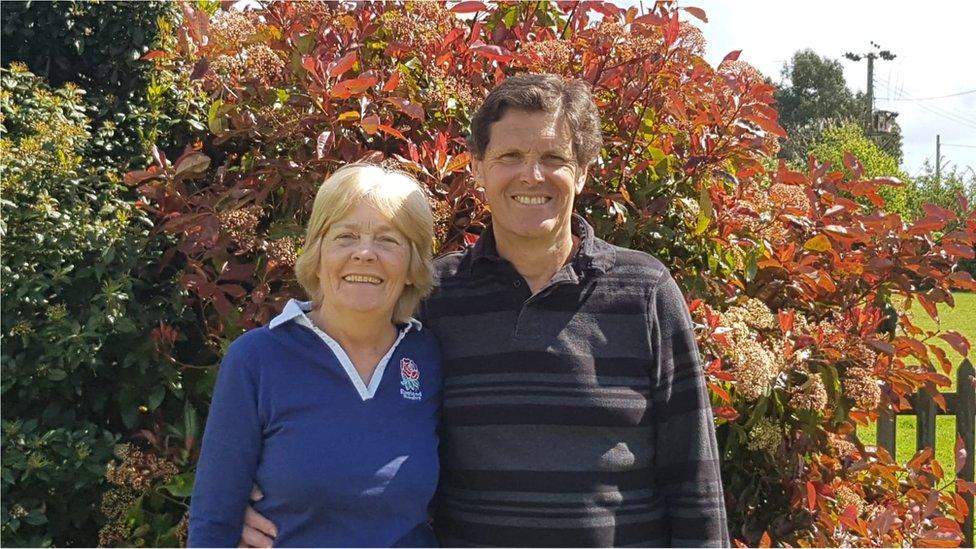
Wendy Cole found herself following her husband Nigel into the intensive treatment unit at Broomfield Hospital
Last April, Wendy Cole, from Maldon, found herself in the same hospital as her husband Nigel, when both of them caught coronavirus.
She spent 19 days at Broomfield Hospital, in Chelmsford, including a spell in the intensive treatment unit (ITU).
Coming out of ITU and realising the toll Covid had taken on her body was terrifying for the 69-year-old.
"It was exhausting," she says. "I can remember they took me for a little walk with the walking frame.
"I didn't realise I was just sliding my legs along the floor. I couldn't believe how I could possibly be that weak.
"I just couldn't believe I could be so vulnerable, it scared me."
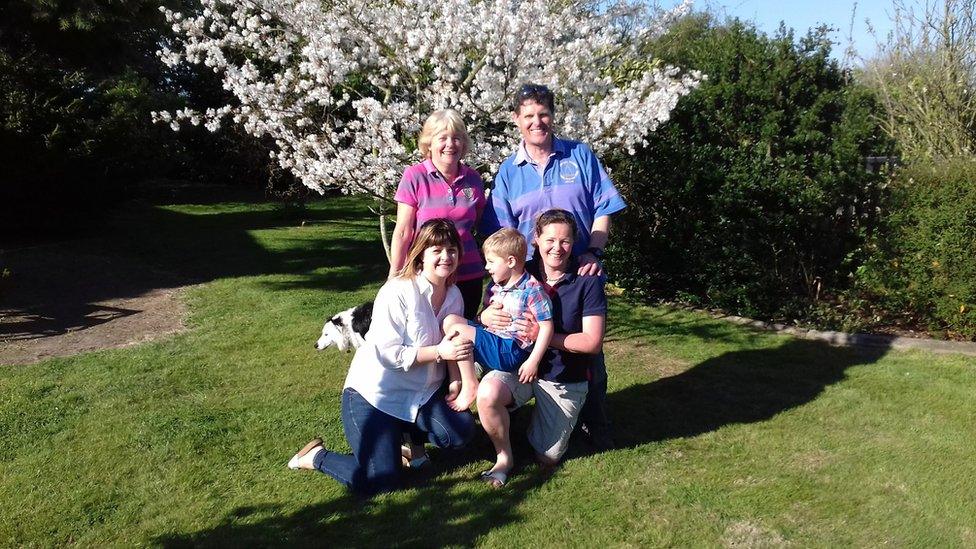
It took six months of recovery at home before Wendy and Nigel Cole felt their fitness levels return to normal
Eventually discharged from hospital, Mrs Cole continued her recovery at home and says it took six months to return to full fitness.
"After about a week," she says, "I started to have a bit more energy.
"It was two weeks before I was able to go upstairs. Probably after three months, I could do pretty much everything at a much slower speed.
"I thought every day how lucky I was to be recuperating here [at home]."

'I might die here in just a few days'
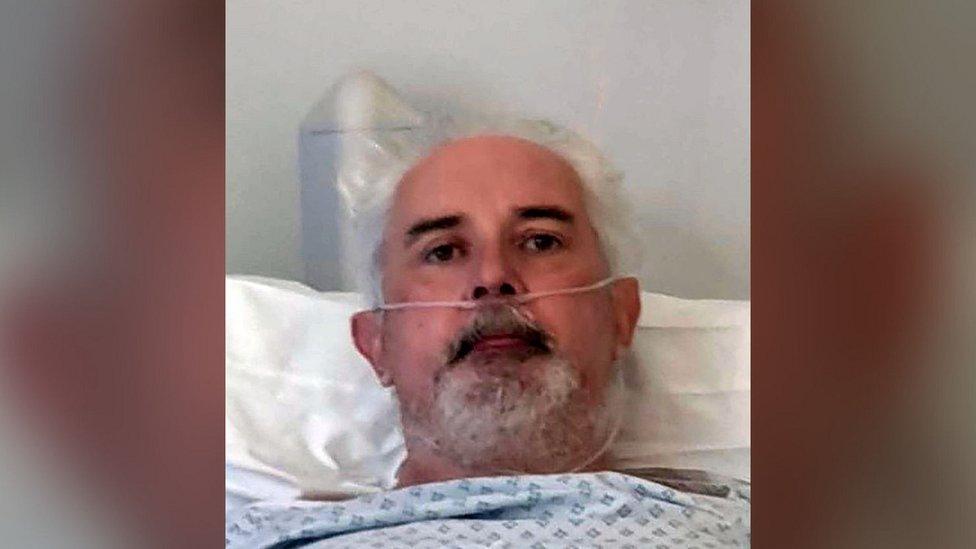
Alan Mitchell was sitting on his sofa at home when he realised his health was deteriorating
"I was a police officer for 29 years, and that was the most frightening thing I have ever encountered," Alan Mitchell says of his experience with the virus in March 2020.
"It had gone from a cold to 'I might die here' in just a few days."
The 58-year-old, from Sandon, near Chelmsford, was sitting at home on his sofa when he suddenly deteriorated.
"I thought, I can't breathe, I can't see and I can't really hear anything.
"My wife is a nurse and she saw my blue lips and that my pulse was really low. It became very serious, very quickly."
Once at Broomfield Hospital, a consultant asked him to phone home to say goodbye because he might not make it.
"I can remember looking at my wife's eyes," he says, describing that video call. "I had so much to say. You always think there is time.
"In that moment, I couldn't tell them how much I love them and cherish them. Suddenly, there were no words. It was two or three minutes of agony, of tears and sadness and a goodbye.
"I had this feeling of just sinking to the bottom of a river and darkness going inwards, going into this weird blankness.
"I sort of thought 'if this is it, if my life is over, if my human race has run, let's go on to the next adventure and see what happens' and that memory is so vivid."
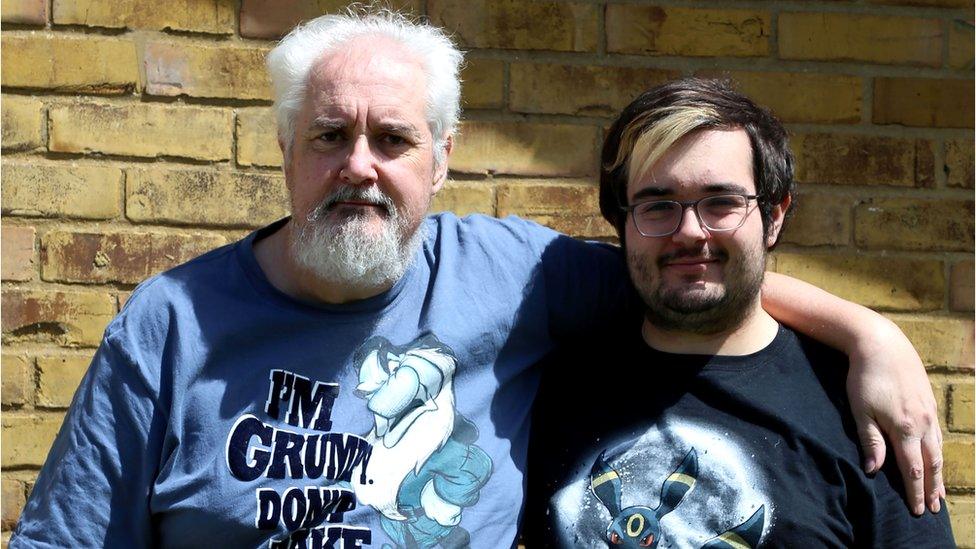
Mr Mitchell and his son Ed ended up in opposite hospital beds with Covid-19
His 24-year-old son Ed was also brought into hospital with coronavirus. The pair ended up on the same ward with beds opposite one another.
For Mr Mitchell Sr, recovery from the virus has been difficult.
"I felt like Bambi," he says. "Those four or five steps around the bed were one of the most arduous things I've ever done.
"More than all the fitness tests and anything else I did in the police, or all the sport I used to do, those five steps were incredibly difficult. I then had to lie down for the rest of the day."
He still struggles to walk and doctors have told him his lungs are damaged, but he feels "more than lucky" to have survived.
"I made it. Thousands of people across the world haven't. I almost feel like we owe those who didn't make it, the honour of doing the best we can with our second chance.
"Each morning I have a real spring in my step, even though it is a very small spring. I think now, every day is an adventure and every hour is a bonus."
Mr Mitchell and Mrs Cole talk about their coronavirus experiences in Life's Second Chances, a special programme produced by BBC Essex. It will be broadcast across all 39 local radio stations on Easter Sunday at 10:00 until 11:00 BST and again from 18:00 until 19:00 on 4 April.

VACCINE: When will I get the jab?
NEW VARIANTS: How worried should we be?
COVID IMMUNITY: Can you catch it twice?
LOOK-UP TOOL: How many cases in your area?


Find BBC News: East of England on Facebook, external, Instagram, external and Twitter, external. If you have a story suggestion email eastofenglandnews@bbc.co.uk, external